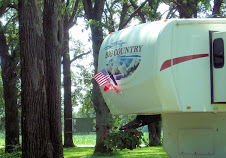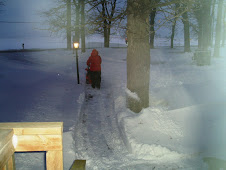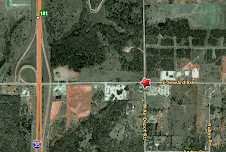Virginia
Maud Dunlap Duncan was the 2nd
woman in Arkansas to secure a registration as a pharmacist. As a
young
businesswoman
and
editor of a newspaper, she ran for mayor of
Winslow
with
an all-woman slate for city council. This “petticoat government”
was elected to two consecutive terms and gained national attention
during its time in office.
Born
October 22, 1873, in Fayetteville,
her
mother died when she was an infant and Maud and her brother went to
live with Albert Dunlap, her uncle, at Fort
Smith.
She was home-schooled until she enrolled in high school in Fort
Smith. At the age of 16, she received a teacher’s certificate from
Cane Hill College and taught at a one-room school. She played the
organ at Stephen’s Episcopal Church, founded by her foster parents.
She
married Hallam Pearce of Milan, Tennessee, a worker for the
Frisco
Railroad
in Winslow in February 1894. The couple had 2 daughters, 1 died in
infancy and the other died shortly after the marriage was annulled,
October 3, 1901. After securing her registration as a pharmacist in
1906, she worked in the M. D. Pearce (Maud Dunlap Pearce) drug store
in Winslow with her uncle.
In
June 1908 she married newspaperman, Gilbert Nelson Duncan. The couple
had no children. While Duncan continued to practice as a pharmacist,
she and her husband purchased the Winslow
Mirror, changed
its name to the Winslow
American, and
began publishing weekly in a room over the drug store.
Her
husband died in the
flu
epidemic of 1918,
but she continued with both the paper and the drug store. Her
interest in civic matters and women’s rights are seen in her
writings and editorials.
Convinced that
women could do as good a job running a city as men, she ran for
mayor and was elected with a full slate of women candidates as her
city council. During the 1925–26 term, her “petticoat government”
raised money to build a much-needed road
up
the steep mountainside to the west. The city council encouraged
residents of the town to spruce up their homes and plant flowers,
suggesting that merchants offer low prices on building materials for
the betterment of the community.
As
mayor, Duncan gave away the small jail, stating that those who broke
the law would appear before her and pay a fine and that worse
criminals could be dealt with by lawmen of the county. After being
reelected for a second term and serving successfully, the women
declined to run again.
In
1935 the pharmacy burned and the newspaper relocated to another
building but Duncan continued to set type by hand and sell ads to
keep the failing business going. The newspaper had gone from a 4-page
weekly to a sporadically issued single sheet. Duncan continued to
write editorials and cover local events until 1956, when she became
so frail her friends moved her to a retirement home in Fayetteville.
Duncan
died in Fayetteville on Jan 21, 1958, at the age of 85. She is buried
at St. Stephen’s Episcopal Cemetery in Winslow.
















No comments:
Post a Comment